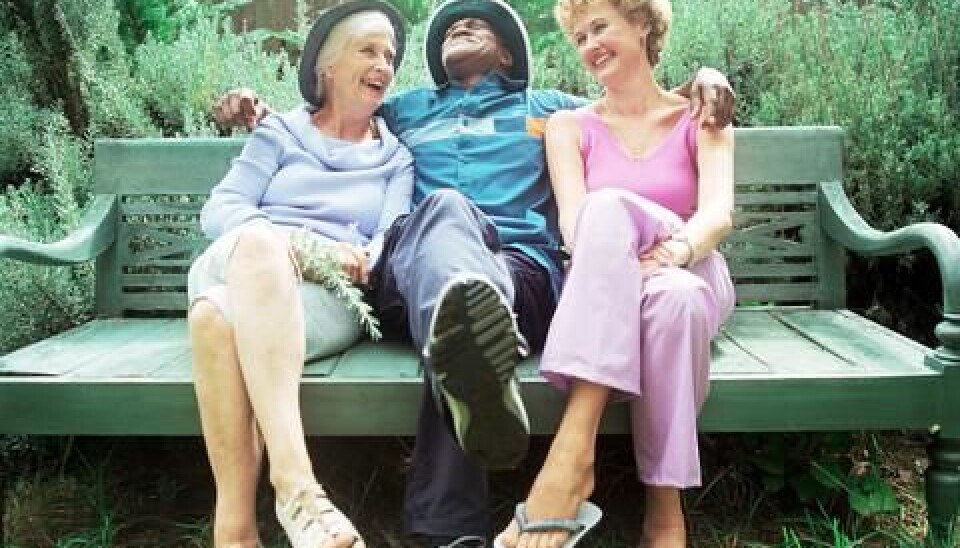
Age strengthens our social skills
New research shows that some of our skills actually improve as we age.
Impaired memory, physical decline, loneliness, and illness are perhaps some of the first things that come to mind when you think about growing old.
If you have that type of pessimistic thoughts about life's inevitable course then it's about time to start being a little more optimistic: research shows that older people are generally more satisfied with their social lives than younger people. And over time, people become better at 'reading' other people and at solving conflicts.
"It's far from everything that gets worse with age," says Gloria Luong, who researchs psychology and social behaviour at the Max Planck Institute for Human Development in Germany. "Our ability to express ourselves verbally, for example, improves because we learn more and more words throughout our lives."
The research shows that older people come up with better solutions to their personal problems than younger people, says Luong.
“They’re also better judges of character and better at resolving conflicts. It may well be that their networks shrink, because their friends die or move, but the quality of their social relations is better than those of younger people," she says.
Younger people get angrier
Together with colleagues from the Max Planck Institute Luonghas been working on a comprehensive study in which they study how 600 people in all age groups develop their social skills during their lives.
To date, the test subjects have been to tests five times; the researchers have measured their brain activity, heart activity, blood pressure, and other factors while they interacted with another person. The test subjects were also interviewed and given psychological tests.
"In one experiment we sat them facing another person who had been hired to play an unpleasant and provocative type," says Luong. “We measured how affected they were emotionally when subjected to provocation."
It turned out that the heart activity and blood pressure of the younger test subjects were higher than of the older people, says Luong.
“They reacted with more anger than the oldest people. That tells us something about how emotional reactions change when one gets older."
Negative emotions are necessary
Previous studies have shown that older people are generally more satisfied with life and their social relations than younger people are. According to Luong, one of the reasons for this is that older people are less stressed in conflict situations.
"But not everyone follows this pattern," she says. "There’re also angry old men. But I should add that negative emotions are not always bad. It is important to be angry if there are good reasons for being angry and you have a need to be sad if you're experiencing a sorrowful loss."
Luong says it is necessary to carry out long-term studies to find out whether the measurements of older people's social skills change according to the age they grew up in. And there are differences between older people.
50 percent of new-born children will reach 100 years
Luong's optimistic message that our social skills and networks generally improve with age can be an encouragement to many of us who live in an age where we live longer than ever before.
"If the predictions become reality, 50 percent of those who are born this year will be able to celebrate their 100th birthday," says Jane Falkingham, professor in demography at the University of Southampton in England.
“In 2050, one in three Europeans will be over 65 years of age, and one in ten will be over 80,” she says.
According to another age researcher attending ESOF, an average of six hours is added to our average lifespan every day — or three months every year.
The article has been updated to correct an error in the last paragraph, changing an average of eight to an average of six hours
-----------------
Read the original story in Danish on Videnskab.dk
Translated by: Michael de Laine











